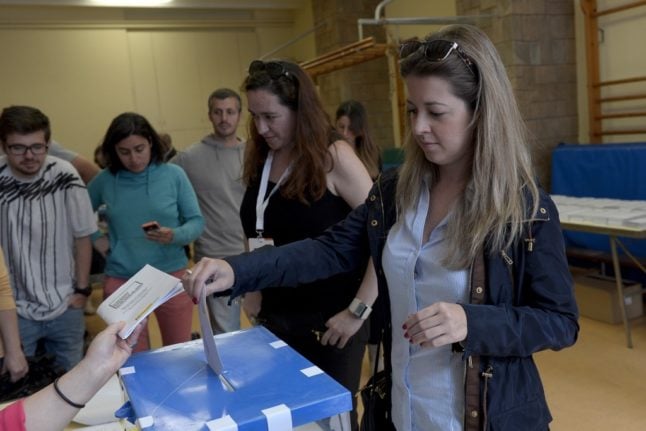On Wednesday December 2 the Spanish senate voted in favour of a bilateral agreement with the UK that will give British residents in Spain and Spanish residents in the UK the right to vote in post-Brexit local elections in the country they live in.
The deal was reported to be on the cusp of being finalised in December 2018 but it’s only now that the Spanish senate has ratified the last part of the bilateral treaty, as with the final Brexit deadline being continuously pushed back, they saw no need for it to come into force.
The deal received 236 votes in favour and 23 abstentions.
The bilateral agreement will guarantee that Brits who are official residents in Spain and Spaniards with ‘settled status’ in the UK can continue to vote in local elections after December 31st 2020.
When The Local Spain initially reported on the agreement, there were 37 locally elected British town and city councillors in Spain, mostly in the Valencia region and Andalusia, the two Spanish regions with the highest number of British residents.
The current negotiation will ensure that the roughly 300,000 Brits officially residing in Spain keep these two rights and will be able place their ballots – or stand – in Spain's next local elections.
READ MORE:
Brexit checklist for Brits in Spain: Residency, travel, healthcare, pets and pensions
Equally, more than 246,000 Spanish citizens have registered as ‘settled’ in the UK to maintain their rights in the country post-Brexit, including that of voting in local elections.
Spain’s ruling left-wing government intends for there to be no “elecciones municipales” in 2021, with either late 2022 or early 2023 being touted in its latest state budget.
The deal is a reciprocal agreement which will be treated as an international treaty that has to be ratified by Spain and Britain's parliaments.
Spain's local elections determine which councillors are chosen in the country's 8,116 municipalities and what seats political parties hold in the 38 provincial councils.
The municipal elections are usually held simultaneously with regional elections in most of Spain's autonomous communities.
British citizens will not be the first non-EU nationals who have the right to vote in local elections in Spain as the country already has bilateral agreements for this with Bolivia, Cape Verde, Chile, Colombia, South Korea, Ecuador, Iceland, Norway, New Zealand, Paraguay, Peru, and Trinidad and Tobago.



 Please whitelist us to continue reading.
Please whitelist us to continue reading.
Member comments